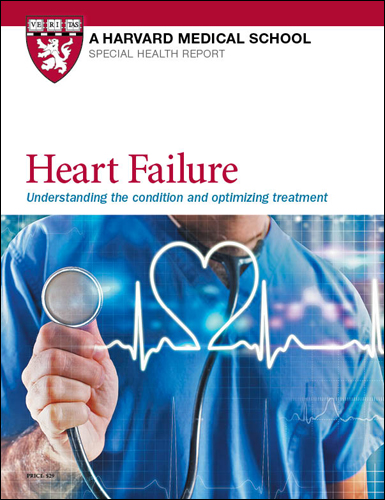Heart Health
A Heart-Healthy Lifestyle for Atrial fibrillation

Diet, exercise, and other lifestyle factors are known to affect your risk of heart disease. The major risk factors for heart disease, as well as the condition itself, are all closely linked to the risk of developing atrial fibrillation.
In atrial fibrillation, the upper chambers of the heart (atria) beat very fast. Instead of contracting in a regular pattern, they quiver (or fibrillate—hence the name atrial fibrillation). This leads to irregular contractions of the ventricles, the lower chambers of the heart, and an increased risk of stroke.
Can a heart-healthy lifestyle prevent atrial fibrillation? Can it reduce symptoms?
There's preliminary evidence that managing the risk factors for heart and blood vessel disease may improve the long-term outlook for people with atrial fibrillation. On a practical level, that could mean fewer episodes of a-fib and improvements in symptoms—in short, a better quality of life for you.
Focus on heart health
The ability of lifestyle changes to reduce the burden of atrial fibrillation remains an active area of research. In the meantime, you can take action to live a healthy and active lifestyle, in addition to medication and other standard a-fib treatments, with effort such as:
- If you smoke, quit.
- Control high blood pressure.
- Get treatment for sleep apnea, if you have it.
- Maintain a healthy weight.
- Don't drink alcohol, or consume only in moderation.
- Keep your cholesterol and triglycerides within a healthy range.
- Get regular exercise.
- Get recommended vaccinations for the flu and pneumonia, especially if you have heart disease.
Make sure to check with your doctor or pharmacist about any new medications you are taking, including over-the-counter remedies and herbal supplements. Sometimes these can interact in a harmful way with warfarin, direct oral anticoagulants, or rhythm-controlling drugs.
Although your ability to prevent or treat atrial fibrillation with lifestyle choices has limits, most people are able to control bothersome symptoms long-term with medication, procedures, or both. That said, some people run out of safe or effective options, in which case the a-fib will become permanent. But with proper anticoagulation, you can still minimize your risk of stroke, the most dangerous complication of this abnormal heart rhythm.
For more information on treating or preventing atrial fibrillation, read Managing Atrial Fibrillation, an Online Guide from Harvard Medical School.
Image: Nastasic/Getty Images
Disclaimer:
As a service to our readers, Harvard Health Publishing provides access to our library of archived content. Please note the date of last review or update on all articles.
No content on this site, regardless of date, should ever be used as a substitute for direct medical advice from your doctor or other qualified clinician.













